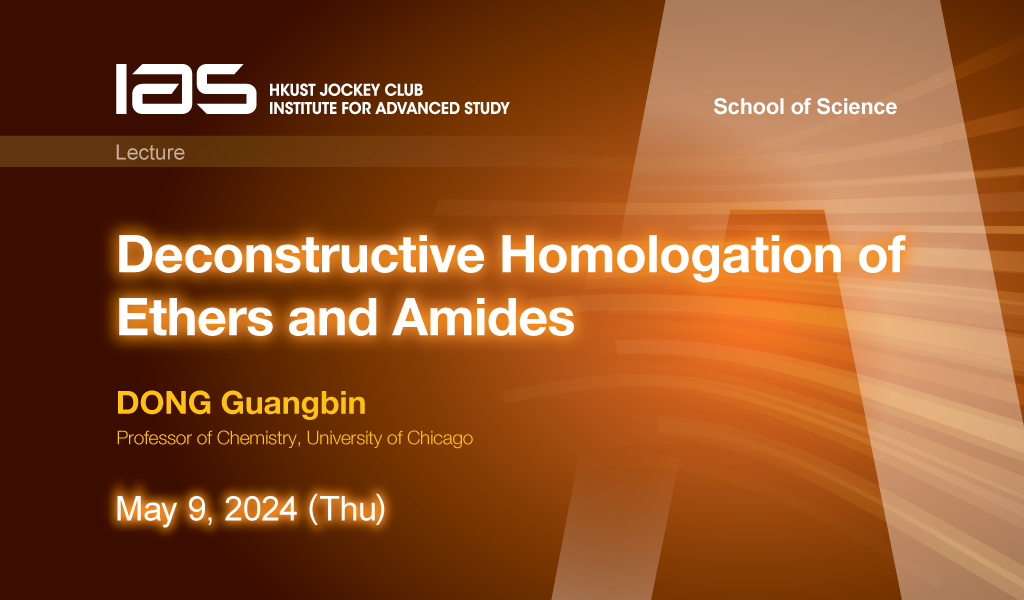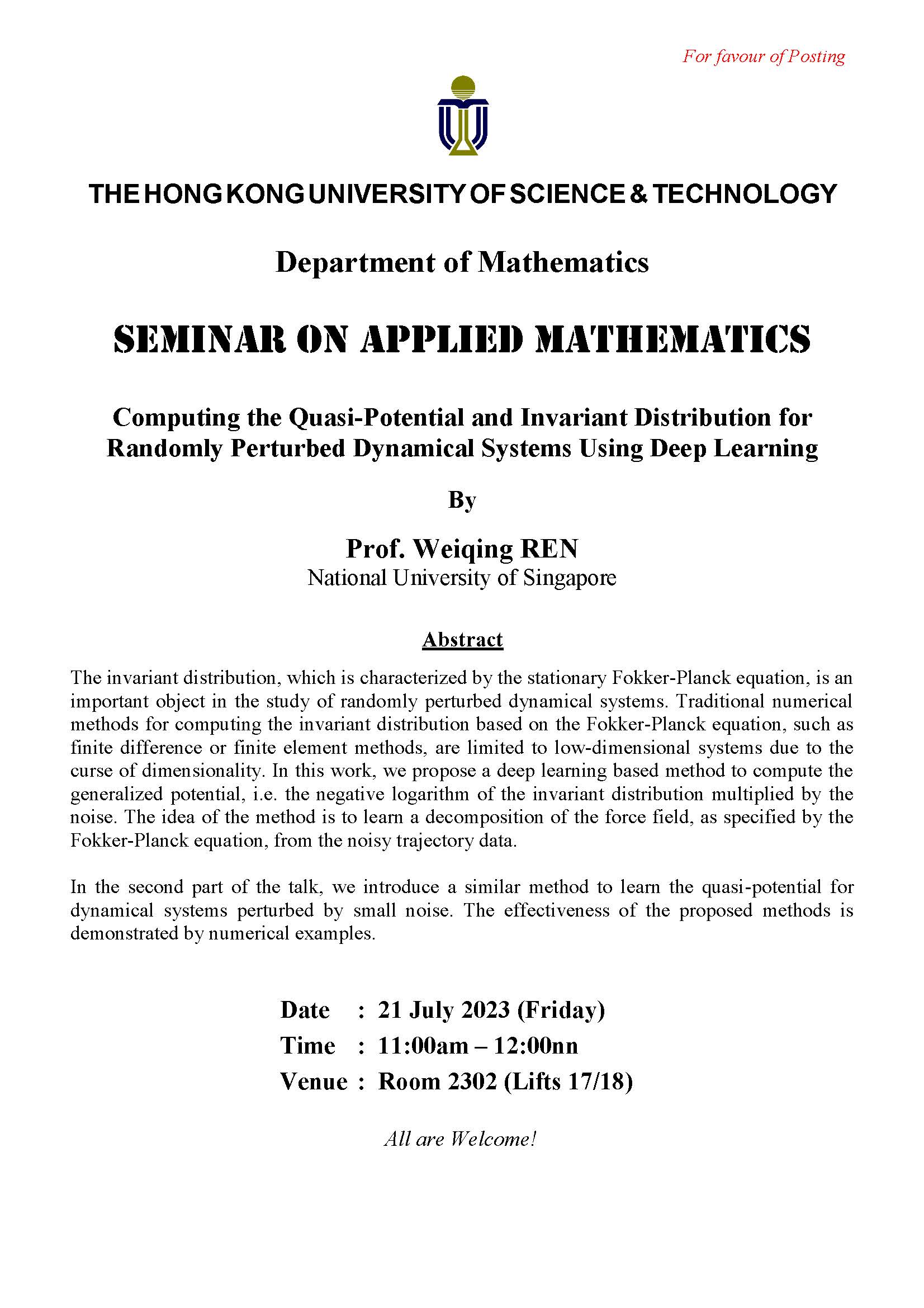The invariant distribution, which is characterized by the stationary Fokker-Planck equation, is an important object in the study of randomly perturbed dynamical systems. Traditional numerical methods for computing the invariant distribution based on the Fokker-Planck equation, such as finite difference or finite element methods, are limited to low-dimensional systems due to the curse of dimensionality. In this work, we propose a deep learning based method to compute the generalized potential, i.e. the negative logarithm of the invariant distribution multiplied by the noise. The idea of the method is to learn a decomposition of the force field, as specified by the Fokker-Planck equation, from the noisy trajectory data.
In the second part of the talk, we introduce a similar method to learn the quasi-potential for dynamical systems perturbed by small noise. The effectiveness of the proposed methods is demonstrated by numerical examples.

National University of Singapore



